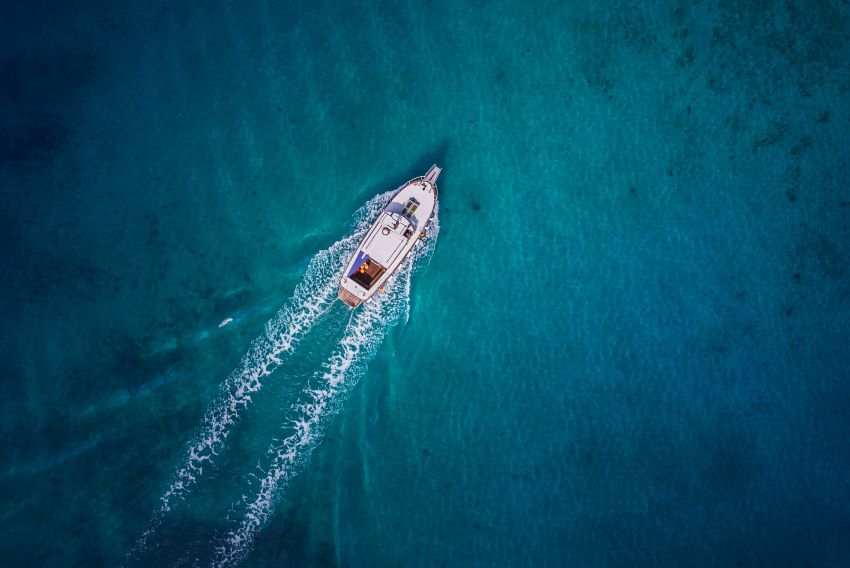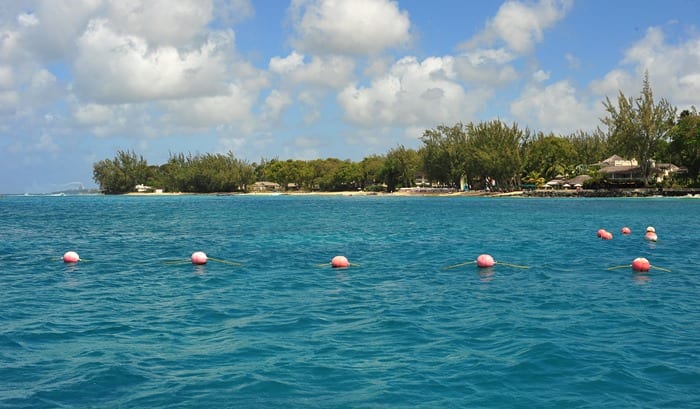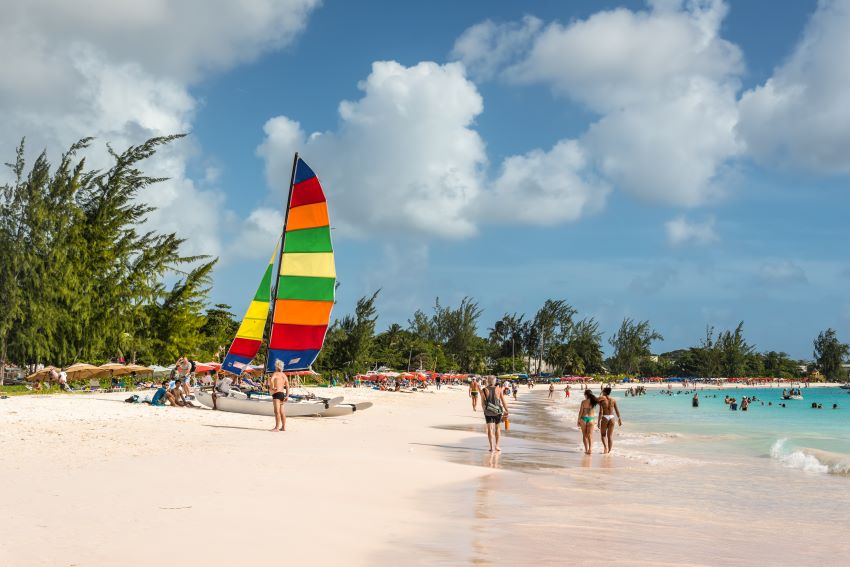
We often hear Government and its technocrats talk about marine spatial planning, and sometimes we believe it is an esoteric topic that does not involve us. However, when we start to delve into the subject, we realise that each and every one of us is involved.
So, the questions that must come to mind are: What is marine spatial planning (MSP)? Is it important now? Why should MSP matter to us in Barbados? How will it be carried out? Is MSP vital for our future?
In a recent interview with the Barbados Government Information Service, Chief Fisheries Officer at the Fisheries Division, Dr. Shelly-Ann Cox, and Director of the Coastal Zone Management Unit (CZMU), Dr. Leo Brewster, provided the answers to these questions and more.
MSP is an internationally recognised process for managing ocean spaces. In the same way that urban planning involves setting aside green spaces while making allowances for commercial development, MSP guides the sustainable use of oceans.
Dr. Cox emphasised just how significant the MSP is to Barbados. “It’s very important. Right now, we have conflicts between certain ocean users, this is clear. The marine spatial planning process is our way to solve conflicts, as this relates to users in the ocean space.
“For us in the fishing industry, it’s really about building trust between different users of our ocean space and negotiating to see what works best for everybody. It is only if we have those hard conversations with each other – where we can negotiate, plan, decide that we will rotate our closed seasons and designate specific areas for fishing, that are traditional and cultural – then, we will be able to preserve our culture. Of course, with shipwrecks and other underwater artefacts as well, it is clear that we need to put these types of systems, such as MSP in place, in order to protect our heritage”, Dr. Cox stressed.
Marine Spatial Planning is an internationally recognised process for managing ocean spaces. In the same way that urban planning involves setting aside green spaces while making allowances for commercial development, MSP guides the sustainable use of oceans.
Under the MSP, there will be benefits derived for Barbadians from every sector of society, including jobs in tourism and maritime support.
Dr. Brewster outlined how MSP, at its best, helps the blue economy, Government, and the community, to better plan activities in the marine environment.
“The better understanding and appreciation as to how the ocean space can be used and managed is something that becomes of growing importance within a blue economy sector strategy for development, not only for revenue generation but, more importantly, for opportunities for livelihood, development, and sustainability,” he said.
The Director of the CZMU notes that the focus for Barbados’ MSP is not only for the nearshore but for its entire Exclusive Economic Zone (EEZ), which is 200 nautical miles extending into the Atlantic. To put into perspective how large the EEZ is, he said to think of the size of Florida.

Indeed, with an ocean space which is quite large, the MSP process would allow Barbados to create connections with international organisations that are interested in assisting small island developing states in achieving their goals.
“It provides new opportunities for investment, whether locally or internationally. This is because, some people, once they start to understand what your ocean space is like, may want to come and invest, to help with the extraction or utilisation of resources, sustainably. You may also find a situation where the householders themselves, in the nearshore space, especially, will have a better appreciation as to what’s going on,” Dr. Brewster explained.
Although MSPs have become more widely known globally from as early as 2009, Barbados has been using MSPs for a much longer time.
Dr. Cox confirmed this, stating: “In the development of the Folkestone Marine Park – that in itself is an MSP process – or look at Carlisle Bay, where they would recommend certain spaces for anchorage, or not.
“I think that anytime stakeholders come together to speak, or for conflict resolution, or to place certain areas for doing things, then that in itself is MSP. You want to make sure that your marine space is clearly defined, where activities happen for the safety of people, as well. You don’t want boats driving at high speeds where people are swimming. All of those things come into play when certain zones are clearly articulated.”
A key reason why all Barbadians should be invested in an MSP, and in so doing protect our marine resources, is that over 70 per cent of the Earth’s surface is covered in water, and our oceans contribute to about half of the world’s oxygen production. This means that, fundamentally, our lives depend on it.
The Chief Fisheries Officer continued: “With Folkestone Marine Park, our existing marine protected area on island, that conversation started in the 1980s, while today, at the global level, the conversation is about protecting 30 per cent of one’s ocean space by 2030, and how MSP will help in aspiring towards that goal.”
For Barbados’ MSP to be implemented and to ensure that it works, there must be the engagement of stakeholders, as pointed out by Dr. Brewster.
“The opportunities for conversations and interactions between all stakeholders on the ocean space allow for better approaches to the sustainable management of resources and opportunities on the ocean. Therefore, as has been seen in other places around the world, there is an opportunity for it to work. I think one of the biggest issues that you face in terms of trying to ensure that it can work effectively is that you must have the overall buy-in from all persons who are interested in a particular location on the ocean surface and space,” he stated.

With this objective in mind, public workshops, which are being held in communities across Barbados, have been designed to gather information and capture the opinions, perspectives, and concerns of Barbadians. Dr. Brewster emphasised that this data, captured from the public, is extremely important to the MSP process, as Barbados works towards sustainable ocean management.
“You could end up with something that looks good on paper but is very difficult to implement, if you don’t have the necessary input from all the stakeholders, to say why it is important that the space is used by them, etc., and the trade-offs that have to be provided, to ensure that there is that mutual understanding across all stakeholder players,” stated Dr. Cox.
A key reason why all Barbadians should be invested in an MSP, and in so doing protect our marine resources, is that over 70 per cent of the Earth’s surface is covered in water, and our oceans contribute to about half of the world’s oxygen production. This means that, fundamentally, our lives depend on it.
Another reason is that healthy marine ecosystems can help mitigate the impacts of climate change, as they absorb carbon dioxide from the atmosphere. They also increase this country’s resilience to sea level rise and ocean acidification. In essence, the protection of marine biodiversity does not simply benefit plants, animals, and other living organisms; it also benefits all of us.
You can have a say in Barbados’ MSP process, to help chart a sustainable course for the future management of our marine space. Take a brief survey online at https://barbadosmarinespatialplan.com/. Your voice matters!
